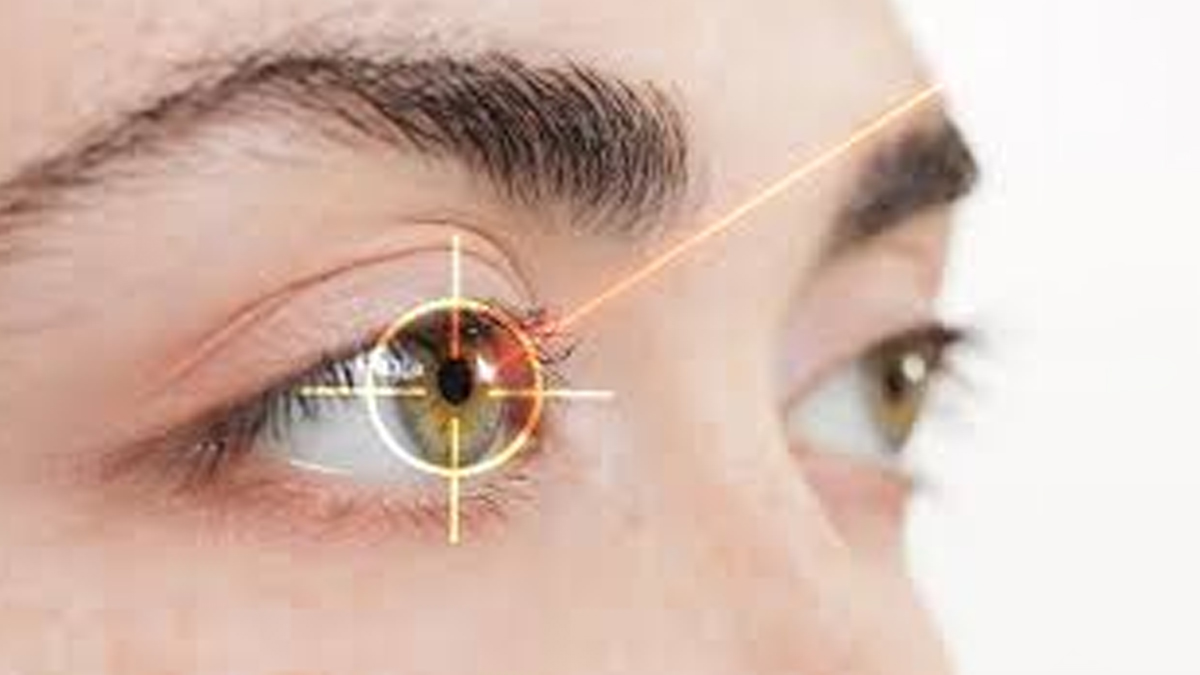
Recently, Bollywood superstar Ajay Devgn opened up about a serious eye injury he sustained on the sets of his much-anticipated film Singham Again. Appearing alongside director Rohit Shetty on Bigg Boss 18, Devgn shared the impact of this incident, which resulted in temporary vision loss and required surgery. While discussing the injury with host Salman Khan, Devgn provided a glimpse into the realities of performing action-packed scenes and the precautions actors take to recover from such accidents.
Table of Content:-
For anyone recovering from eye surgery, adhering to specific post-operative guidelines is crucial for a smooth and complete recovery. Here, we’ll explore Ajay’s experience and highlight key do’s and don’ts following eye surgery to ensure optimal healing.
Ajay Devgn’s Eye Injury on the Set of Singham Again
The incident that led to Devgn’s injury occurred during a mistimed action sequence. Devgn explained to Salman Khan that, while filming a stunt, an unexpected mishap caused him to be struck near his eye with a stick, leading to significant trauma. "I even lost my vision for two-three months," Devgn revealed, sharing the severity of the accident. Fortunately, medical intervention and an eye surgery helped him regain his vision.
View this post on Instagram
This incident highlights the potential risks actors face when performing intense action scenes, often with real physical consequences. For Devgn, his eye injury was not just a temporary setback but a reminder of the importance of proper care and precaution after any eye surgery.
Essential Do’s After Eye Surgery
Recovering from eye surgery requires diligent attention to the instructions provided by your eye doctor. Following these guidelines will minimize complications and support quicker healing.
Also Read: Kartik Aaryan Opens Up About Work Burnout: Warning Signs Your Body Wants You To Notice
Protect Your Eyes While Sleeping
After surgery, protect your eyes while you sleep by wearing an eye shield, usually recommended for at least ten days. This precautionary measure helps avoid accidental injury or rubbing, which could disrupt the healing process.
Use Medications as Prescribed
Post-surgery eye drops are essential for keeping the eye moisturized and preventing infections. Ensure you follow the dosage and frequency prescribed, and keep up with follow-up appointments even if your eye feels normal.

Manage Pain Carefully
Mild pain is common post-surgery and can typically be managed with over-the-counter medication like paracetamol. However, if the pain is severe, contact your doctor promptly to rule out any complications.
Take Precautions With Blurred Vision
Initially, blurred or distorted vision can occur as your eye adjusts post-surgery. Avoid strenuous activities, take care when moving around, and give yourself time for vision to stabilize before returning to regular tasks.
Also Read: Kay Kay Menon Opens Up About Malaria Diagnosis; How To Stay Safe This Malaria Season
Important Don’ts After Eye Surgery
Certain activities should be avoided following eye surgery to ensure the eye heals properly and doesn’t experience additional strain.
Avoid Rubbing or Touching Your Eye
Rubbing the eye or using cloths directly on it can disrupt the healing process and increase the risk of infection. Instead, gently clean the area as advised by your doctor and avoid any contact with the operated eye.
Limit Physical Activities
Heavy lifting or strenuous exercise should be avoided for four to six weeks, as it can strain the eye. Even bending over for long periods can put pressure on the eye and potentially interfere with the recovery process.
Stay Away From Swimming Pools and Hot Tubs
Swimming and hot tubs are off-limits for at least four weeks to prevent bacterial contamination in the wound. Any contact with potentially unclean water can lead to severe complications.
Don’t Engage in High-Risk Activities
Contact sports and rough physical play should be avoided to protect your eye from impact. Activities that risk accidental injury to the eye can seriously harm the healing area, delaying recovery.
Refrain From Using Eye Cosmetics
Eye makeup or creams should be avoided for at least a month following surgery. Cosmetic products may irritate the sensitive eye area and increase the risk of infection during the critical healing phase.
Be Cautious With Driving and Household Tasks
Avoid driving until you’re confident that your vision is fully restored. Similarly, avoid cooking or standing over hot stoves, which can cause strain or expose your eye to heat and steam, potentially complicating recovery.
Reaching Full Recovery
Healing from eye surgery is a gradual process. While some patients recover quickly, others may take longer, depending on the severity of the injury and their overall health. To ensure the best outcome, follow these guidelines closely, and always consult your doctor if you notice any unusual symptoms, such as increased pain, worsening vision, or unusual discharge.
Bottomline
Ajay Devgn’s experience on the set of Singham Again sheds light on the physical risks that come with action cinema, but it also serves as a reminder of the importance of taking eye injuries seriously. With proper care, precautions, and adherence to medical advice, recovering from eye surgery can be manageable, allowing patients to regain their vision and return to their daily lives without long-term complications.
Read Next
When Breathing Becomes Dangerous: How To Reduce Respiratory Risks As Delhi's Air Quality Plummets
How we keep this article up to date:
We work with experts and keep a close eye on the latest in health and wellness. Whenever there is a new research or helpful information, we update our articles with accurate and useful advice.
Current Version